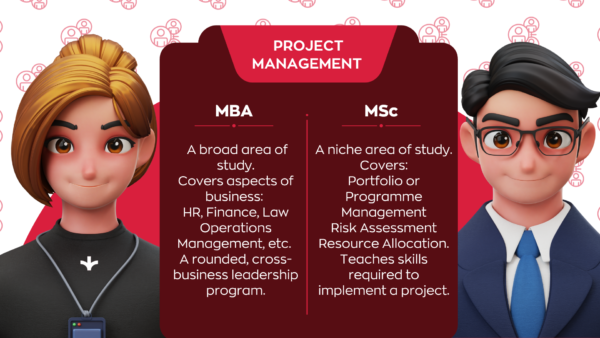
“What is a project management degree? Isn’t it a managerial role that one gets with experience?” – these are questions we hear a lot of people ask. Here are some quick answers to these questions.
Yes, it is a managerial role, as the name suggests, but organisations have realised that mere experience or seniority does not always guarantee a successful completion of a project. You need to have a level of dedicated knowledge and expertise to assume responsibility for management of projects.
A degree in project management will teach you, at the outset, the processes of planning, organising and executing projects. You will learn to define the scope of a project, time management skills to plan and stay on schedule, budgeting, principles of HR to manage your teams, documentation, risk assessment, troubleshooting, leadership, and communication skills to ensure smooth progress in any project across industries.
For instance, you can choose any of the following methodologies to manage a project:
- Agile
- Kanban
- Scrum
- Waterfall
- Six Sigma
- Lean manufacturing
- Rational Unified Process
- Extreme Programming and many more.
Each of these methodologies will give you a path to plan, organise and execute your project. You can choose one, many, or combine a few and decide the one that would be the best suited for your project and your organisation. As a project manager, this would be one of the first decisions you will be taking.
If you are wondering what these words mean, well, it is part of what you will learn in your project management degree. At the bachelor’s level, coursework typically focuses on skill development including analytical, interpersonal, organisational, and teamwork. An MS in project management in UK will teach you advanced skills in communication, risk analysis, strategy, leadership, and quality control. In some universities, you can even choose to specialise in core areas such as engineering, supply chain management or construction management. As a part of your masters programme, you will also gain practical experience by completing research projects, capstone projects, internships or placements.




































